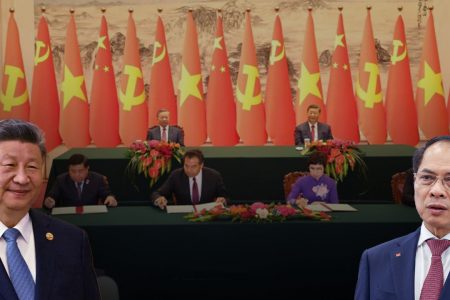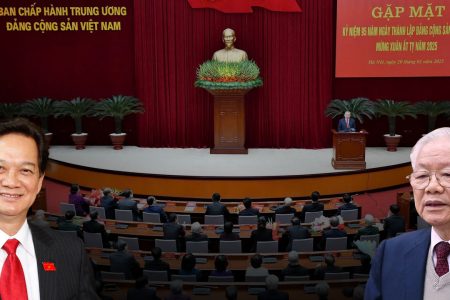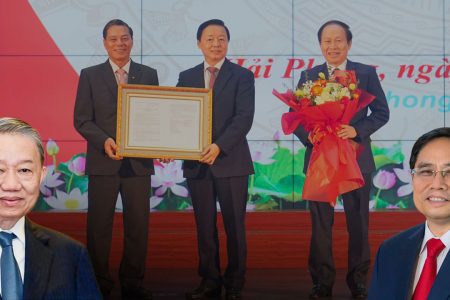
In December 2009, Mr. Nguyen Tan Dung visited Russia for two days, during that trip, Mr. Dung met Mr. Putin then Prime Minister and President Dmitry Medvedev. Mr. Dung represented Vietnam to sign a contract to buy from Russia 6 Kilo-class submarines under Project 636 Varshavyanka (NATO designation: Improved Kilo) worth $2 billion. That is, each submarine is worth more than $300 million.
On August 25, 2010, the first ship under the contract was built and launched two years later. The remaining five ships were built and launched within the next four years. On May 28, 2014, the sixth ship in the contract was built, and launched on September 28, 2015.
On the surface, it looks like this is a contract to increase military strength for Vietnam, but behind it are huge amounts of kickback money from Russia. That is the unwritten law in the bidding packages to buy weapons from Vietnam from the past to the present. The Russian side is willing to write in the contract a higher price than the offered price, and then give the kickback to the Vietnamese Defense Ministry official and the head of the Government.
It is worth mentioning that, before that, China bought from Russia 8 Kilo-class submarines for $2 billion. It’s worth $250 million each. Compared to the figure of over $300 million of Vietnam, it is clear that the Russian side sold Vietnam at a higher price. In fact, the difference is kickback.

The Kilo submarine returned home and was over prized by the press, everyone thought that Vietnam’s military strength had increased. But in fact, over the years, those Kilo submarines have disappeared. Experiencing many times in the sea, islands and territorial waters of Vietnam were threatened, the Kilo submarine disappeared without knowing where to dive.
In fact, the number of diesel-powered submarines that Vietnam bought from Russia is an outdated weapon. It is by no means an advantage over China. The submarine that Vietnam has, China also has, even China has more modern submarines. Then, the question is, buying submarines does not strengthen the military power for Vietnam, why did the government buy them?
Some people believe that the Ministry of Defense bought them to earn “kickbacks.” With $2 billion contract, the amount of kickback would be huge.
In July 2017, the British military news newspaper Shephard Media, citing a US defense source, said that Vietnamese defense officials informed the US delegation in a meeting in Hanoi said that arms sales must be “kickback” on 25% of the total contract value. According to this source, the meeting was “suddenly stopped” after the Vietnamese side made that request.

According to an anonymous information from the military community to Thoibao.de, “kickback” is an unwritten law in doing business with foreign countries from time immemorial. Vietnamese officials requested kickback with Russia and was always met. The Russian side can sell goods, Vietnamese officials have very large kickback, and people have to pay taxes for the Ministry of Defense to buy weapons, then government and defense officials take kickback. The US rejects the rules of the game because the US is a transparent country, not abetting corruption.
In 2015, US President Barack Obama lifted the lethal arms embargo against Vietnam. The Vietnamese Defense Ministry should have seized that opportunity to buy modern American weapons so that Vietnam could become stronger, instead of buying “rubbish Russian” weapons which turned into useless iron piles as they are outdated and old. However, the Vietnamese side never agreed to buy weapons without receiving kickbacks.
The contract for 6 Kilo ships was inflated, in which at least the parties shared $500 million. This is a huge case if Mr. Nguyen Phu Trong turns over the file and conducts the furnace grouping.
Thoibao.de (Translated)




























